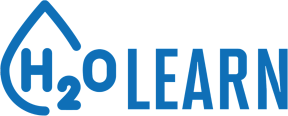Contribution to EC JRC Report on Artificial Intelligence and the Rights of the Child
26.06.2022
Davinia Hernández-Leo, director of the TIDE research group at UPF, has contributed with a section entitled "9.3. Directions for the responsible design and use of AI by children and their communities: Examples in the field of Education" to an European Commission JRC publication.
Hernández-Leo, D., (2022) Directions for the responsible design and use of AI by children and their communities: Examples in the field of Education, In Charisi, V., Chaudron, S., Di Gioia, R., Vuorikari, R., Escobar Planas, M., Sanchez Martin, J.I. and Gomez Gutierrez, E., Artificial Intelligence and the Rights of the Child : Towards an Integrated Agenda for Research and Policy, EUR 31048 EN, Publications Office of the European Union, Luxembourg, 2022, ISBN 978-92-76-51837-2, doi:10.2760/012329, JRC127564, pp. 73-74.
This is the abstract of the complete report:
Charisi, V., Chaudron, S., Di Gioia, R., Vuorikari, R., Escobar Planas, M., Sanchez Martin, J.I. and Gomez Gutierrez, E., Artificial Intelligence and the Rights of the Child : Towards an Integrated Agenda for Research and Policy, EUR 31048 EN, Publications Office of the European Union, Luxembourg, 2022, ISBN 978-92-76-51837-2, doi:10.2760/012329, JRC127564.
Abstract: This report proposes a set of science-for-policy future directions for AI and child’s rights. It connects research and policy to gain insights by the interplay among different stakeholders and to go beyond the identification of ethical guidelines towards methods for practical future implementations. For the formulation of the proposed directions, we considered the current relevant policy initiatives by major international organizations and the recent coordinated actions on AI by the European Commission as well as the state-of-the art of the scientific work on AI-based technologies for children with a focus on three applications, conversational agents, recommender systems and robotic systems. In addition, we took into consideration the results of two workshops with young people and three workshops with experts and policymakers that contributed to the formulation of a set of requirements, methods and knowledge gaps as an integrated agenda for research and policy on AI and the rights of the child.
